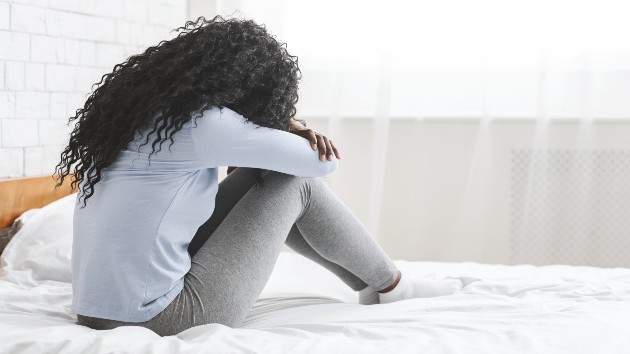Prostock-Studio/iStockBy ABBY CRUZ
(NEW YORK) — With mental health resources in high demand during the coronavirus pandemic, one doctor has stepped up to give tips online and through her book to help others cope.Dr. Rheeda Walker created a guide for people of color who cannot afford or do not have access to mental health help called The Unapologetic Guide to Black Mental Health: Navigate an Unequal System, Learn Tools for Emotional Wellness, and Get the Help You Deserve.The book has seen a spike in demand due to COVID-19 and has been called a saving grace by the likes of hip-hop radio personality Charlamagne tha God, who is outspoken on mental health in the black community.”I wrote The Unapologetic Guide to Black Mental Health because I wanted to shift the conversation about mental health and the African American community and how we talk about it because there’s so much stigma,” said Walker. “There’s so much resistance to the conversation that I felt like we just needed to turn that shift completely around.”Walker has also found a way to meet the demand for people who do not have access to her book: Instagram. Walker uses the app as a way to interact with people who seek help, goes live to take part in Q&As, and posts ways to cope while at home. She also started a YouTube account to help those who do not have Instagram.”This is a really tough time across communities because we’re going through this pandemic that nothing and absolutely nothing could have prepared us for,” said Walker.Because of that, she said, she encourages people to “cut ourselves a little bit of slack and provide a little bit of grace and recognizing that this is a tough time.””We’re not expected to be able to function at the level that we were pre-pandemic, it’s just it’s simply not an option,” she said.Walker says the inspiration behind her book title is the stereotypes that come with seeking help for mental health. She explains that oftentimes, people in the black community do not have the courage to seek mental health help because they are afraid of being called “crazy” or being judged by their peers or they ignore signs they need help.”I don’t think that we realize the degree to which mental challenges aren’t about hearing voices or being disconnected from reality,” said Walker. “We all need to be able to do a little bit better so that we can function at work, function at school, be in relationships and pursue our life goals.”Walker says her book can be a tool for all people of color in need of mental health support, even for those who may believe that “all you have to do is pray about it” to deal with challenges they may be facing. Walker agrees with that theory to a certain extent, giving religious insights and even Bible scriptures in her book, but wants her readers and others to know that sometimes you need other avenues of help.”Praying is great, but by all means, if you feel like you need help, please do more than pray,” she said. “I challenged some of these cultural narratives. But I also want to make sure that we shine a light and pay attention to some of the things that are happening [in the African American community].”Walker explains that there are several different ways to cope with mental health right now, depending on the situation. For people who have anxiety during this time, she recommends getting more rest, taking time to sit down to drink some tea and taking some moments to regroup. She also recommends reaching out to family members and friends.But her key tip is to be a good listener.”If someone reaches out to you, be a good listener, we don’t have to solve problems. Just listen,” she said. “Because we have to be here for one another. We have to be here for ourselves. And we have to create a community where we’re here. We’re here for one another as non-judgmental listeners.” Copyright © 2020, ABC Audio. All rights reserved.












